
Cascais: The Jewel of Portugal's Coastline
Situated along the stunning Portuguese Riviera, Cascais is a charming coastal town that seamlessly blends history, culture, and natural beauty. Once a quaint fishing village, it has transformed into a vibrant tourist destination, attracting visitors with its golden sandy beaches, picturesque streets, and a relaxed, welcoming atmosphere. Stroll through the historic center of Cascais, where cobbled streets are lined with colorful buildings, boutique shops, and cozy cafes. The town's rich history is evident in landmarks like the Cascais Citadel and the Palácio da Cidadela, both offering glimpses into its royal past. The Museu Condes de Castro Guimarães, set in a beautiful palace, showcases impressive art collections and captivating local history. Nature lovers will find plenty to explore in Cascais. The stunning coastline offers endless opportunities for sunbathing, swimming, and water sports. Don't miss the scenic Boca do Inferno, a dramatic cliff formation where waves crash into the rocky shore, creating a mesmerizing natural spectacle. For a more tranquil experience, visit the lush Parque Marechal Carmona, a perfect spot for a leisurely picnic or a peaceful walk. Cascais is also a gateway to the beautiful Sintra-Cascais Natural Park. Just a short drive away, the park boasts lush forests, rolling hills, and the enchanting town of Sintra, where you can explore the fairy-tale Palácio da Pena and the mysterious Quinta da Regaleira. Whether you're looking for adventure, relaxation, or a cultural experience, Cascais offers something for every traveler.
Local tips in Cascais
- Visit the local markets to experience authentic Portuguese cuisine and pick up unique souvenirs.
- Rent a bike to explore the scenic coastal paths and enjoy breathtaking ocean views.
- Check out the weekly free concerts at the Cascais Cultural Center for a taste of local music and arts.
- Arrive early at popular beaches like Praia da Rainha to secure a good spot, especially during the summer.
- Use the local train service for an easy and scenic trip to nearby Lisbon or Sintra.
Cascais: The Jewel of Portugal's Coastline
Situated along the stunning Portuguese Riviera, Cascais is a charming coastal town that seamlessly blends history, culture, and natural beauty. Once a quaint fishing village, it has transformed into a vibrant tourist destination, attracting visitors with its golden sandy beaches, picturesque streets, and a relaxed, welcoming atmosphere. Stroll through the historic center of Cascais, where cobbled streets are lined with colorful buildings, boutique shops, and cozy cafes. The town's rich history is evident in landmarks like the Cascais Citadel and the Palácio da Cidadela, both offering glimpses into its royal past. The Museu Condes de Castro Guimarães, set in a beautiful palace, showcases impressive art collections and captivating local history. Nature lovers will find plenty to explore in Cascais. The stunning coastline offers endless opportunities for sunbathing, swimming, and water sports. Don't miss the scenic Boca do Inferno, a dramatic cliff formation where waves crash into the rocky shore, creating a mesmerizing natural spectacle. For a more tranquil experience, visit the lush Parque Marechal Carmona, a perfect spot for a leisurely picnic or a peaceful walk. Cascais is also a gateway to the beautiful Sintra-Cascais Natural Park. Just a short drive away, the park boasts lush forests, rolling hills, and the enchanting town of Sintra, where you can explore the fairy-tale Palácio da Pena and the mysterious Quinta da Regaleira. Whether you're looking for adventure, relaxation, or a cultural experience, Cascais offers something for every traveler.
When is the best time to go to Cascais?
Iconic landmarks you can’t miss
Quinta da Regaleira
Explore the enchanting Quinta da Regaleira in Sintra, a UNESCO site filled with history, architecture, and stunning gardens that mesmerize every visitor.
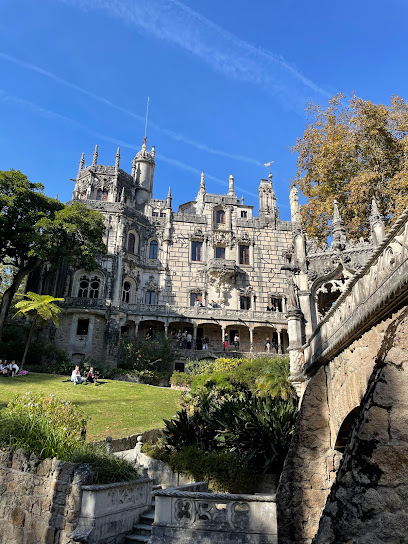
Cabo da Roca
Discover Cabo da Roca, the westernmost point of Europe, where breathtaking cliffs meet the Atlantic Ocean in a stunning natural spectacle.
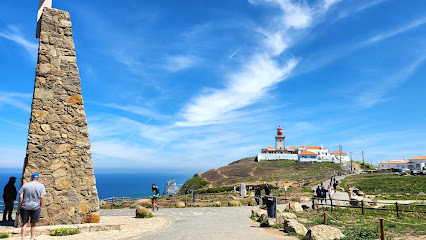
Boca do Inferno
Experience the breathtaking beauty of Boca do Inferno in Cascais, where the Atlantic waves crash against dramatic cliffs for an unforgettable natural spectacle.
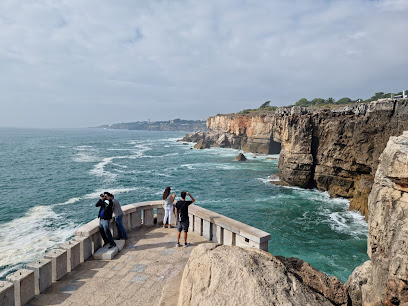
Mercado da Vila
Explore the vibrant Mercado da Vila in Cascais for a taste of local culture, fresh produce, and artisanal crafts in a lively market atmosphere.
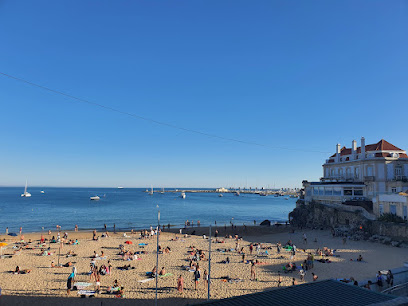
Parque Marechal Carmona
Explore the lush landscapes and tranquil atmosphere of Parque Marechal Carmona, a must-visit park in Cascais, Portugal, perfect for relaxation and family fun.
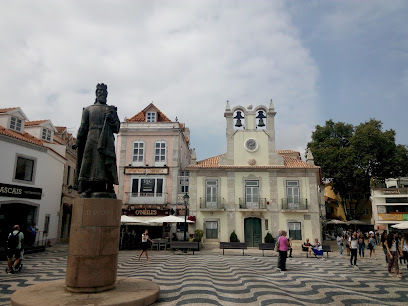
Cascais Marina
Discover the charm of Cascais Marina, where stunning views, vibrant dining, and exciting water activities await every traveler.
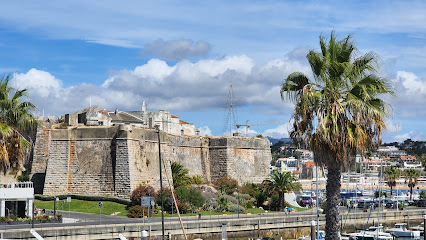
Casa da Guia
Experience the vibrant blend of shopping, dining, and adventure sports at Casa da Guia in Cascais, a unique destination for all travelers.
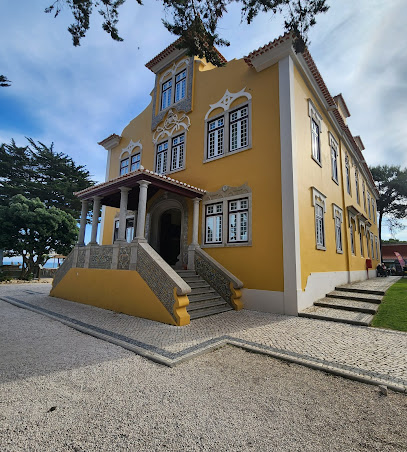
House of Wonders
Discover the essence of vegetarian cuisine at the House of Wonders, a vibrant café in the heart of Cascais, offering delicious dishes and a welcoming atmosphere.
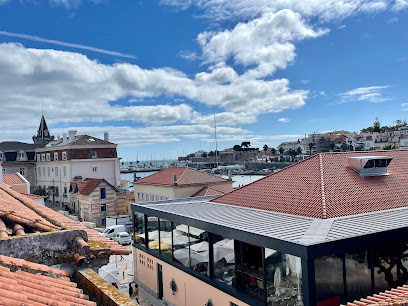
Casa das Histórias Paula Rego
Discover the captivating world of Paula Rego at Casa das Histórias in Cascais, where art, storytelling, and architectural beauty converge.
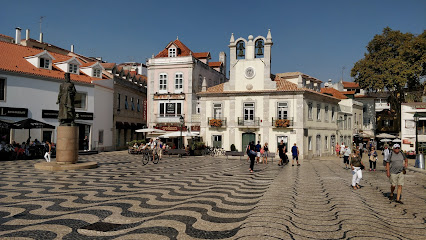
Fortress Nossa Senhora da Luz de Cascais
Discover the rich maritime history and breathtaking views at the Fortress Nossa Senhora da Luz in Cascais, a must-visit for every traveler.
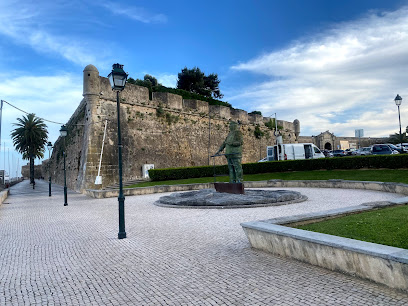
Farol do Cabo Raso
Discover the breathtaking views and maritime history at Cabo Raso Lighthouse, a stunning attraction along the coast of Cascais, Portugal.
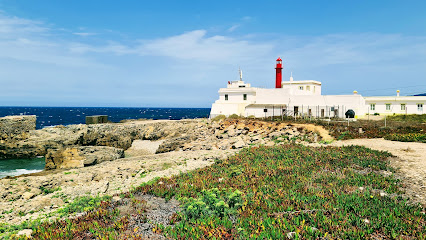
TwoToo Cascais
Indulge in the refreshing flavors of bubble tea, crepes, and sundaes at TwoToo Cascais, the perfect sweet escape in the heart of Portugal.
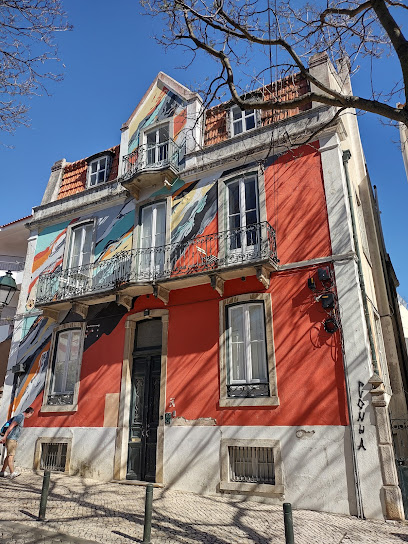
Guia Lighthouse
Explore the Guia Lighthouse, a remarkable historical landmark in Cascais, offering stunning coastal views and insights into Portugal's rich maritime history.
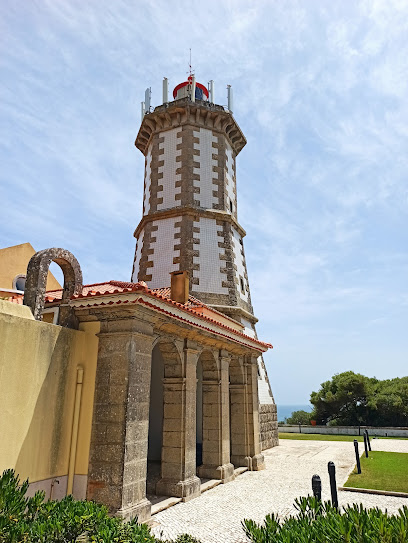
Citadel of Cascais
Discover the historic Citadel of Cascais - a captivating fortress blending rich heritage with stunning ocean views and contemporary art.
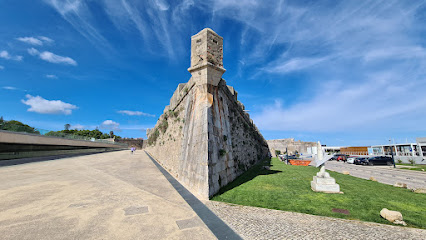
Santa Maria House Museum
Explore the Santa Maria House Museum in Cascais, a historic gem showcasing art and culture against a backdrop of stunning coastal views.
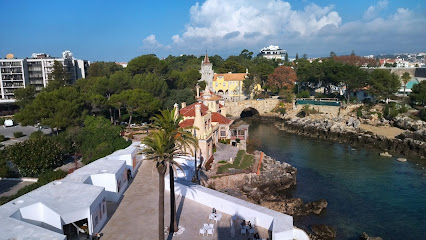
Unmissable attractions to see
Praça do Comércio
Discover the vibrant history and stunning architecture of Praça do Comércio, Lisbon's iconic waterfront square, perfect for tourists and locals alike.

Oceanário de Lisboa
Explore the Oceanário de Lisboa, a mesmerizing aquarium showcasing diverse marine life and promoting ocean conservation in the heart of Lisbon.

National Palace of Pena
Discover the whimsical National Palace of Pena, a UNESCO World Heritage site in Sintra, Portugal, featuring breathtaking views and stunning architecture.

Castelo de São Jorge
Discover the historical richness and breathtaking views at Castelo de São Jorge, a premier castle and archaeological museum in Lisbon.
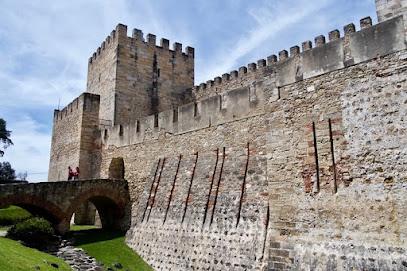
Cape Roca
Discover the breathtaking beauty of Cape Roca, the westernmost point of Europe, where stunning cliffs meet the Atlantic Ocean's azure waters.
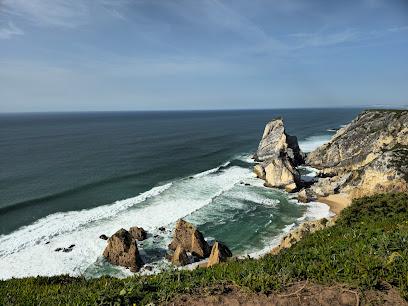
Quinta da Regaleira
Discover the mystical charm of Quinta da Regaleira, a UNESCO World Heritage Site in Sintra, featuring enchanting gardens and historical architecture.

Estádio do Benfica
Discover the iconic Estádio do Benfica, a must-visit destination for sports fans and tourists in Lisbon, Portugal, featuring rich history and thrilling matches.
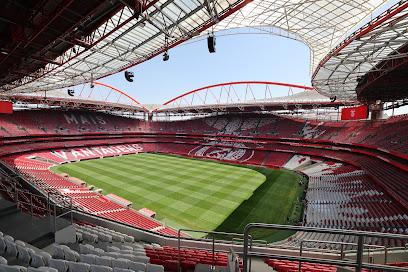
LX Factory
Experience the creative pulse of Lisbon at LX Factory, a vibrant cultural hub filled with art, shops, and delicious dining.
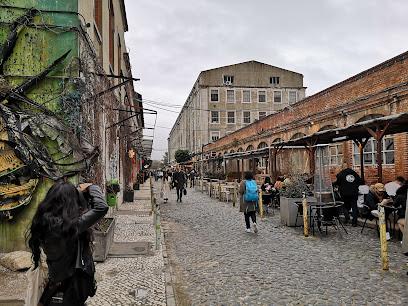
Jerónimos Monastery
Explore the Jerónimos Monastery in Lisbon, a UNESCO World Heritage site showcasing stunning Manueline architecture and rich maritime history.
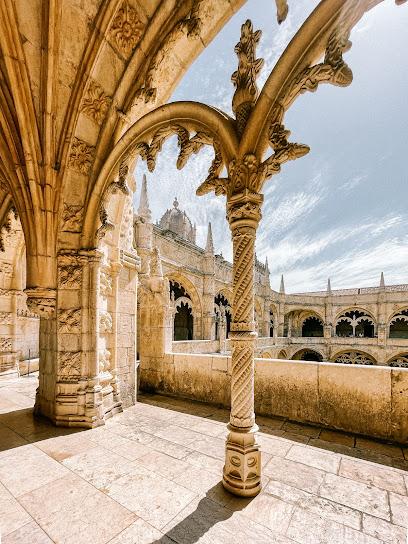
National Palace of Sintra
Explore the National Palace of Sintra, a historical landmark that offers a glimpse into Portugal's royal heritage amidst stunning architectural beauty and lush landscapes.

Santa Justa Lift
Discover the breathtaking views of Lisbon from the iconic Santa Justa Lift, a stunning blend of architecture and function in the heart of the city.

Boca do Inferno
Experience the breathtaking beauty of Boca do Inferno in Cascais, where dramatic cliffs meet the roaring Atlantic Ocean, creating a scenic paradise for all.
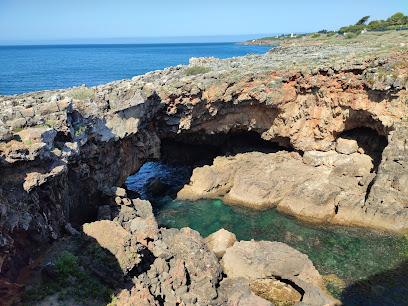
Parque Eduardo VII
Experience the serene beauty of Parque Eduardo VII, a lush city park in Lisbon with stunning views, gardens, and cultural events.
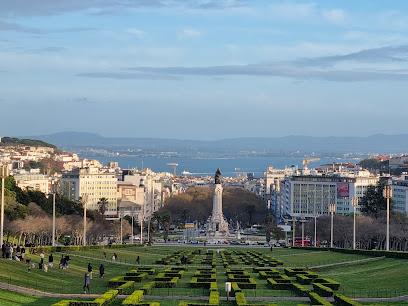
Jardim Zoológico
Explore Jardim Zoológico in Lisbon, home to a diverse array of wildlife and stunning landscapes, perfect for a family-friendly day out.
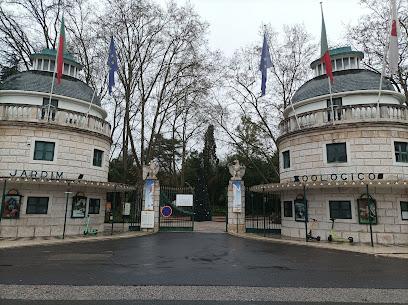
Sanctuary of Christ the King-Portugal
Discover breathtaking views and spiritual serenity at the iconic Sanctuary of Christ the King in Almada, Portugal, a landmark steeped in culture and beauty.

Essential places to dine
Baía do Peixe - Cascais
Experience authentic Portuguese seafood at Baía do Peixe in beautiful Cascais - where every dish tells a story of the ocean.
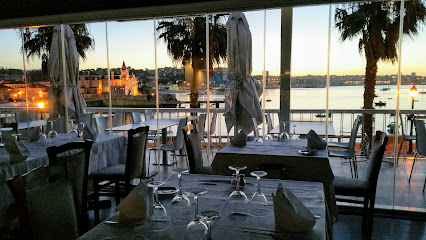
Mar do Inferno
Experience exquisite seafood dining with breathtaking ocean views at Mar do Inferno in Cascais.
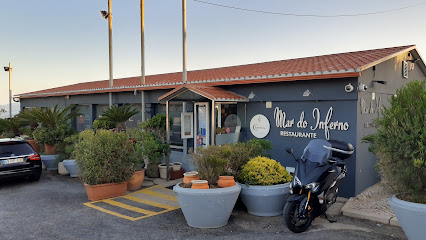
A Nova Estrela
Experience authentic Portuguese cuisine at A Nova Estrela in Cascais – perfect for families and travelers seeking delicious local flavors.
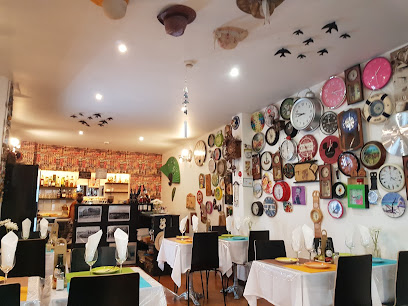
House of Wonders
Experience vibrant vegetarian dishes at House of Wonders in Cascais – where culinary creativity meets local charm.
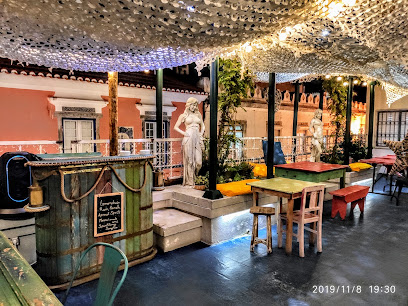
100 Montaditos
Experience the essence of Spanish cuisine at 100 Montaditos in Cascais, where over 100 delicious montaditos await every food lover.
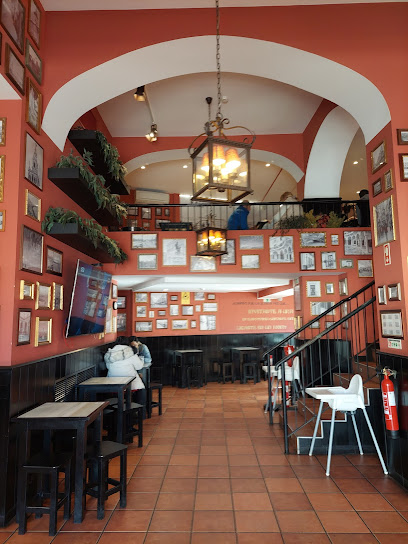
Taberna Clandestina Cascais
Discover the flavors of Portugal and Italy at Taberna Clandestina in Cascais – where tapas meet music in a vibrant atmosphere.
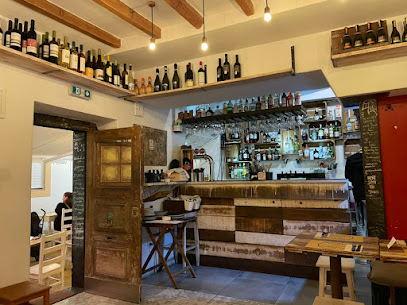
Hífen
Discover Hífen in Cascais: A culinary treasure offering exquisite Portuguese dishes in a warm and inviting atmosphere.
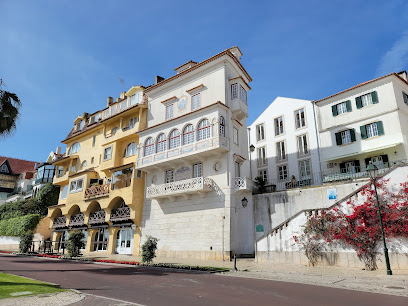
De Benedictis - Gastronomia Italiana
Experience authentic Italian cuisine at De Benedictis - Gastronomia Italiana in Cascais, where every dish tells a story.
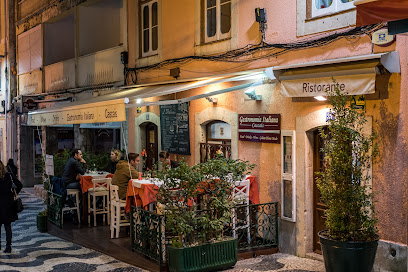
Taberna Económica de Cascais
Experience authentic Portuguese cuisine at Taberna Económica de Cascais - where tradition meets flavor in every dish.
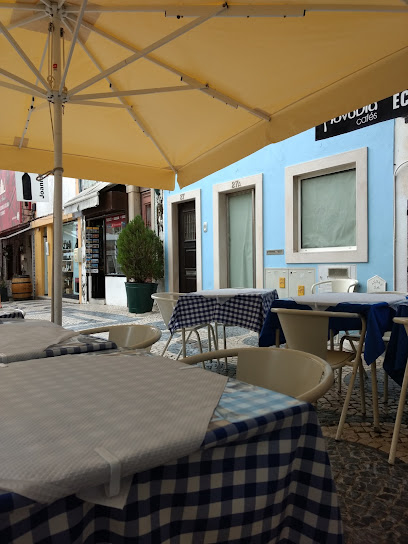
Monte Mar
Discover Monte Mar in Guincho: A premier fish restaurant offering exquisite seafood dishes with breathtaking ocean views in Portugal.
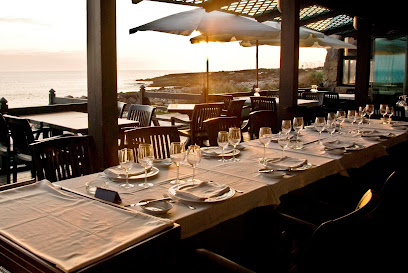
Fortaleza do Guincho
Discover luxury at Fortaleza do Guincho - where historic charm meets breathtaking ocean views and gourmet dining experiences.
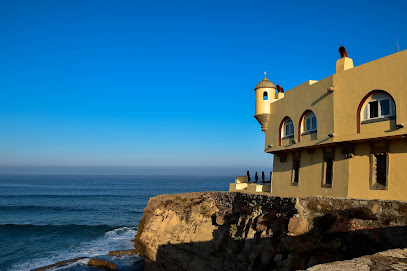
El Clandestino
Experience the vibrant fusion of Peruvian and Mexican cuisine at El Clandestino in Cascais - where every dish tells a story.
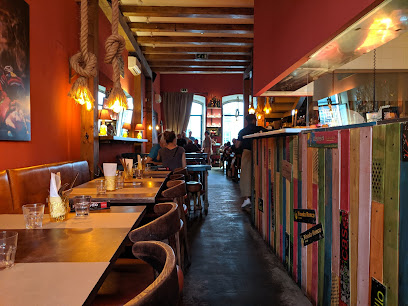
Palaphita Cascais
Experience culinary excellence in nature at Palaphita Cascais – a unique restaurant offering seafood delights and vibrant live music.
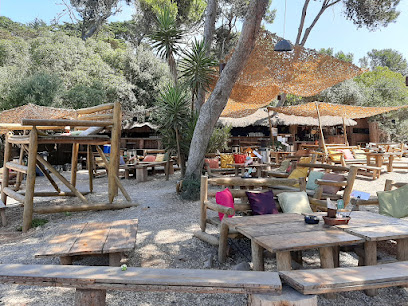
O Faroleiro
Experience exquisite seafood dining with breathtaking ocean views at O Faroleiro in Cascais.
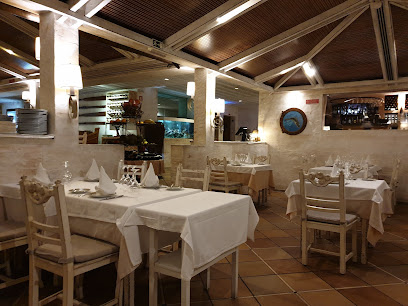
Flamingo Restaurant , Cascais.
Experience the vibrant flavors of Cascais at Flamingo Restaurant—your destination for fresh seafood and delightful Portuguese cuisine.
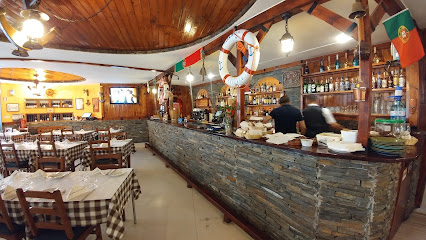
Markets, malls and hidden boutiques
CascaiShopping
Discover CascaiShopping, a vibrant shopping haven in Portugal, offering a mix of fashion, dining, and entertainment for a perfect day out.
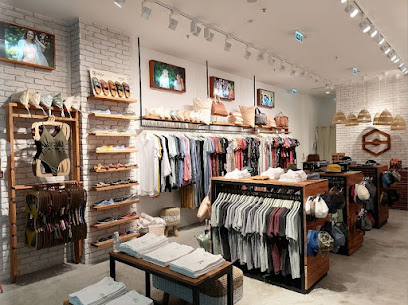
Sport Zone
Discover the best in sportswear at Sport Zone in Cascais Shopping - where quality meets style for every sports enthusiast.
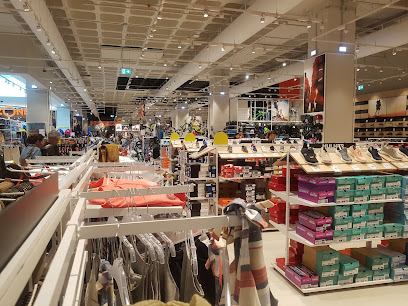
ZARA
Explore ZARA in Alcabideche for the latest fashion trends and stylish apparel for the whole family at moderate prices.
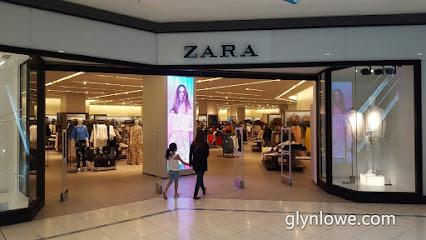
Milkees Cascais - Specialty Coffee
Discover Milkees in Cascais – a specialty coffee shop offering exquisite brews, fresh pastries, and a cozy atmosphere for the perfect breakfast or brunch experience.
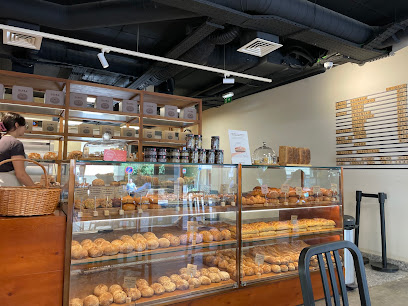
The Craft Company, Cascais
Explore The Craft Company in Cascais for a vibrant selection of yarns and crafting supplies, perfect for all skill levels in a picturesque coastal setting.
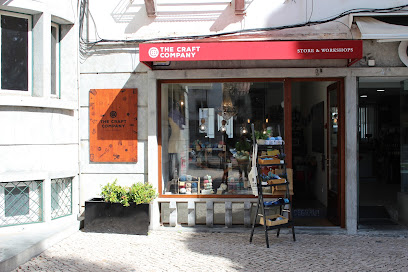
Ourotêxteis, Lda. (Cascais)
Discover a vibrant selection of fabrics and haberdashery at Ourotêxteis, Lda. in Cascais, a haven for textile lovers and creative souls.
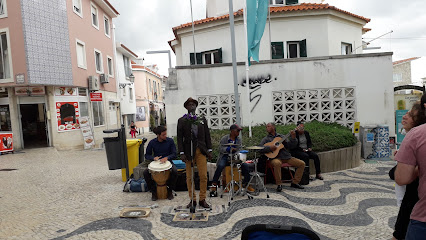
Bershka
Discover the latest fashion trends at Bershka Alcabideche – your go-to destination for stylish clothing and accessories for every occasion.
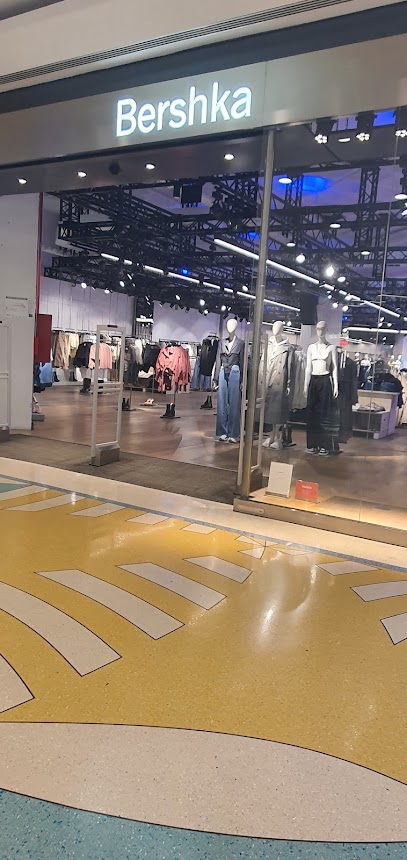
Bosque Feliz
Discover Bosque Feliz in Cascais: a magical toy store offering bikes, health products, and a delightful shopping experience for families.
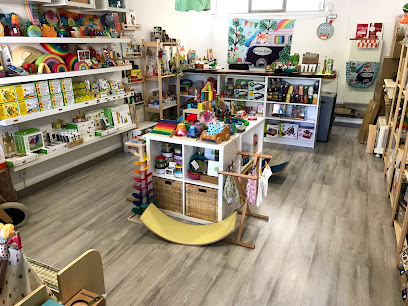
ECCO Cascais Shopping
Discover stylish footwear and trendy fashion accessories at ECCO Cascais Shopping in Alcabideche, your ultimate fashion destination.
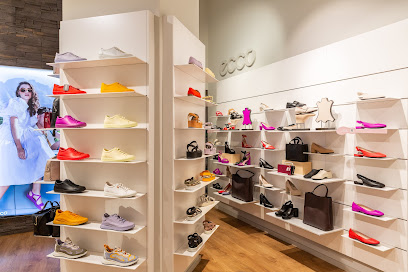
Indie not a bookshop
Explore Indie Not a Bookshop in Cascais, Portugal—a literary oasis offering a curated selection of books and a welcoming atmosphere for all book enthusiasts.
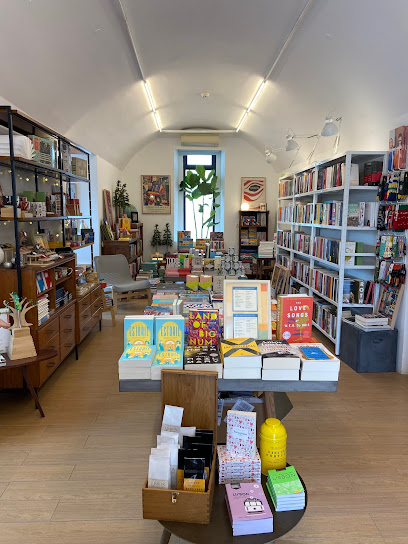
Flying Tiger Copenhagen
Explore the vibrant and quirky world of Flying Tiger Copenhagen, where unique gifts, toys, and home goods await in Alcabideche.
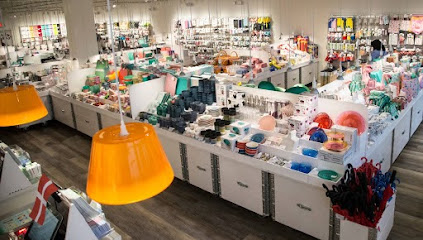
Boutique dos Relógios Plus
Explore exquisite timepieces at Boutique dos Relógios Plus in CascaiShopping, where luxury meets accessibility for every watch enthusiast.
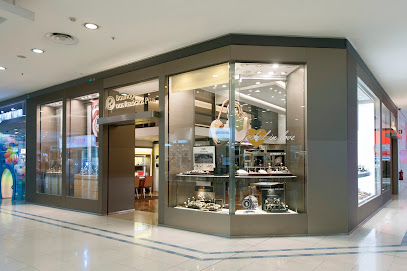
Galeria5050
Explore Galeria5050 in Cascais for unique handcrafted jewelry, pottery, and local art, perfect for a memorable souvenir.
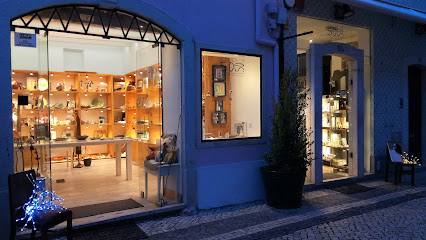
White & Voodoo Cascais
Discover unique fashion and accessories at White & Voodoo Cascais, where style meets local culture in a vibrant shopping experience.
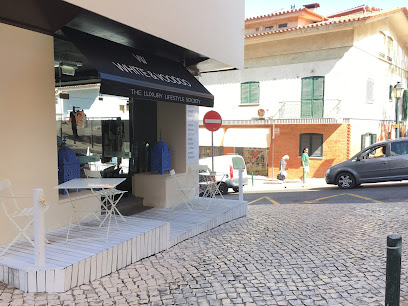
The Body Shop
Explore The Body Shop in Cascais Shopping for ethically sourced cosmetics and gift items that celebrate beauty and sustainability.
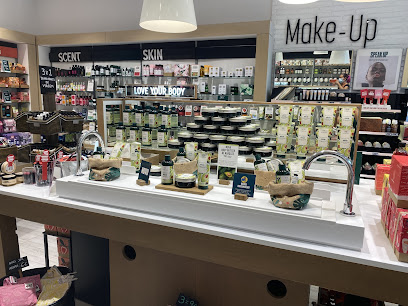
Essential bars & hidden hideouts
Bar do Guincho
Experience the best of coastal dining at Bar do Guincho, where stunning ocean views meet delicious Portuguese cuisine.
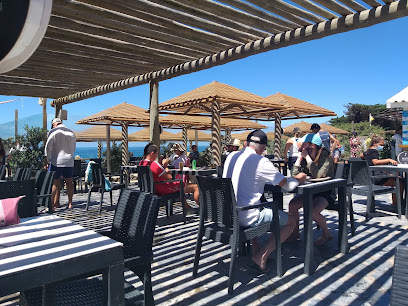
Taberna Clandestina Cascais
Explore Taberna Clandestina in Cascais for an unforgettable culinary journey featuring delicious tapas and exquisite cocktails in a lively atmosphere.
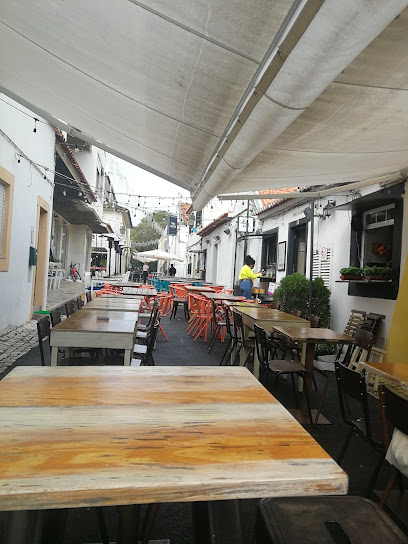
O’Luain’s Irish Pub
Discover a slice of Ireland in Cascais at O’Luain’s Irish Pub, where great food, drinks, and music come together for an unforgettable experience.
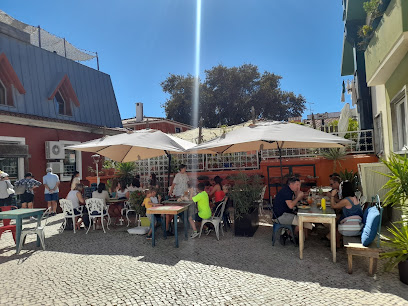
Cooleys Irish Pub Bar
Discover the vibrant atmosphere of Cooleys Irish Pub in Cascais, where authentic Irish culture meets lively entertainment and delicious food.
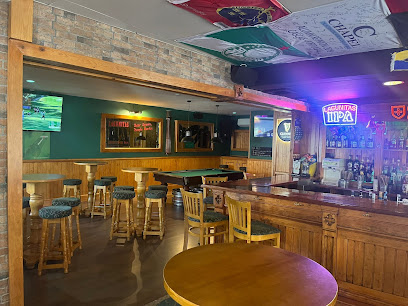
O'Neill's Irish Pub
Discover the heart of Irish culture at O'Neill's Irish Pub in Cascais, where lively music and delicious food await.
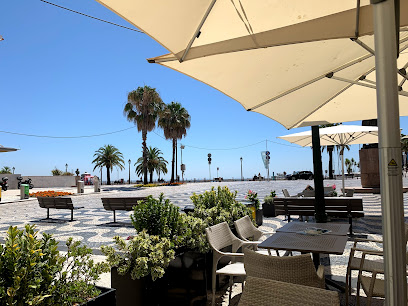
Escotilha beach bar & Restaurant
Discover the perfect blend of delicious cuisine and stunning ocean views at Escotilha Beach Bar & Restaurant in Cascais.
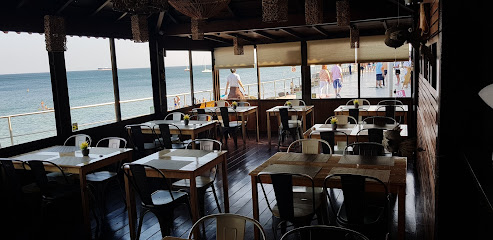
Crow Bar
Discover the vibrant ambiance of Crow Bar in Cascais, where great drinks and lively music create unforgettable nights.
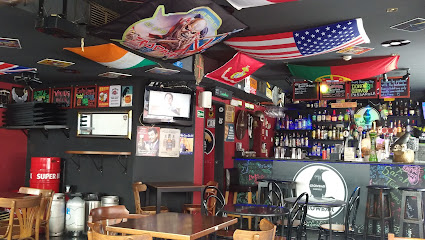
Liquid Lounge
Experience the fusion of art and leisure at Liquid Lounge in Estoril, where cocktails meet creativity in a stunning seaside setting.
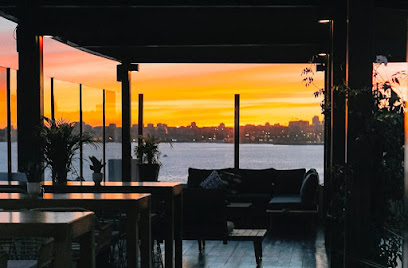
La Bodeguita - Drinks & Tapas & Shisha
Experience vibrant tapas and refreshing drinks at La Bodeguita, the perfect bar in Cascais for a taste of Spain.
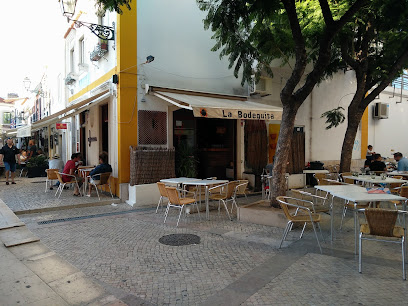
Rocha do Inferno
Discover Rocha do Inferno: A scenic bar in Cascais offering stunning ocean views, refreshing drinks, and a relaxed atmosphere for every traveler.
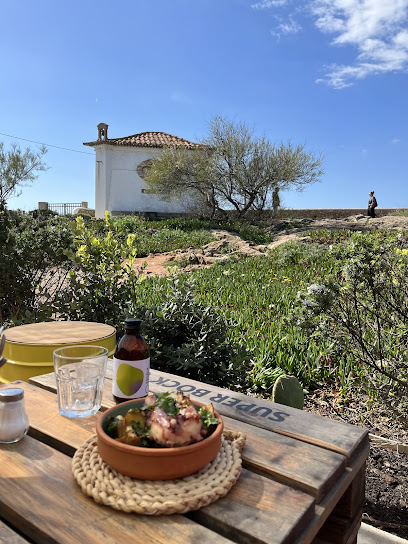
A Prova Real
Discover the charm of A Prova Real, a unique wine bar in Cascais offering an exquisite selection of wines and a cozy atmosphere perfect for relaxation.
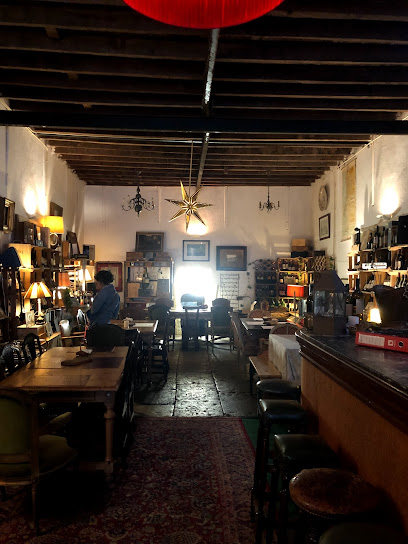
The Crafty Cellar
Experience the vibrant beer culture of Cascais at The Crafty Cellar, where local brews and a lively atmosphere await!
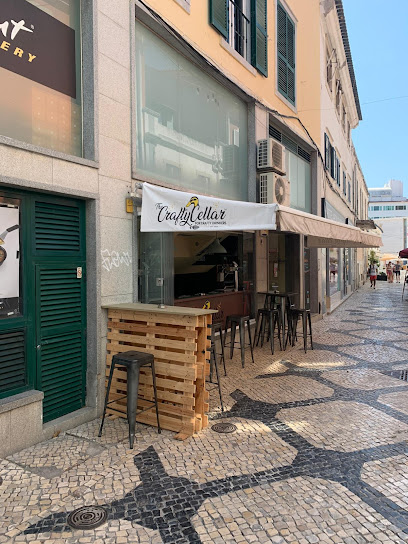
La Mala Suerte Bar
Discover La Mala Suerte Bar in Cascais, a cocktail haven where creativity meets vibrant nightlife, perfect for an unforgettable evening out.
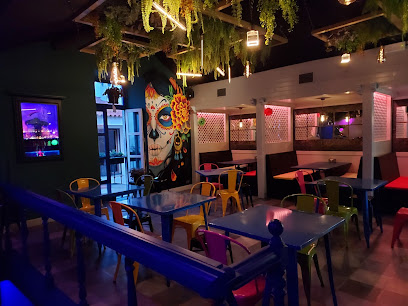
The Beach Club
Experience the vibrant atmosphere and stunning views at The Beach Club, Cascais' premier bar for relaxation and entertainment.
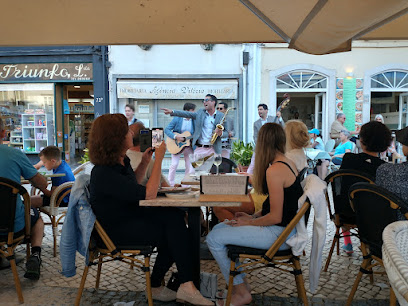
Travel experiences inspired by this city
Explore more travel diariesLocal Phrases
-
- HelloOlá
[oh-LAH] - GoodbyeAdeus
[ah-DEH-oos] - YesSim
[seem] - NoNão
[now] - Please/You're welcomePor favor/De nada
[por fah-VOHR/deh NAH-duh] - Thank youObrigado/a
[oh-bree-GAH-doo/dah] - Excuse me/SorryCom licença/Desculpe
[kohm lee-SEN-sah/deh-SKUL-peh] - How are you?Como está?
[KOH-moh ehs-TAH] - Fine. And you?Estou bem. E você?
[ehs-TOH-oo behn/eh voh-SEH] - Do you speak English?Fala inglês?
[FAH-lah een-GLEHZ] - I don't understandNão entendo
[now ehn-TEHN-doo]
- HelloOlá
-
- I'd like to see the menu, pleaseGostaria de ver a ementa, por favor
[gohs-tah-REE-ah deh vehr ah eh-MEHN-tah/por fah-VOHR] - I don't eat meatNão como carne
[now KOH-moo KAHR-neh] - Cheers!Saúde!
[sow-OOH-deh] - I would like to pay, pleaseGostaria de pagar, por favor
[gohs-tah-REE-ah deh pah-GAHR/por fah-VOHR]
- I'd like to see the menu, pleaseGostaria de ver a ementa, por favor
-
- Help!Socorro!
[so-KOH-roo] - Go away!Vai-te embora!
[VAH-ee-teh ehm-BOH-rah] - Call the Police!Chame a Polícia!
[SHAH-meh ah poh-LEE-see-ah] - Call a doctor!Chame um médico!
[SHAH-meh oom MEH-dee-koo] - I'm lostEstou perdido/a
[ehs-TOH pehr-DEE-doo/dah] - I'm illEstou doente
[ehs-TOH doo-EHN-teh]
- Help!Socorro!
-
- I'd like to buy...Gostaria de comprar...
[gohs-tah-REE-ah deh kohm-PRAR] - I'm just lookingEstou só a ver
[ehs-TOH soh ah vehr] - How much is it?Quanto custa?
[KWAN-too KOOSH-tah] - That's too expensiveIsso é demasiado caro
[EE-soh eh dah-mah-ZYAH-doo KAH-roo] - Can you lower the price?Pode baixar o preço?
[POH-deh bahy-SAHR oo PRAY-soo]
- I'd like to buy...Gostaria de comprar...
-
- What time is it?Que horas são?
[keh OH-rahz sown] - It's one o'clockÉ uma hora
[eh OO-mah OH-rah] - Half past (10)Meia (dez)
[MAY-ah (dehz)] - MorningManhã
[mah-NYAH] - AfternoonTarde
[TAR-deh] - EveningNoite
[NOY-teh] - YesterdayOntem
[ohn-TEHM] - TodayHoje
[OH-zheh] - TomorrowAmanhã
[ah-mah-NYAH] - 1Um
[oom] - 2Dois
[doh-ees] - 3Três
[trehs] - 4Quatro
[KWAH-troo] - 5Cinco
[SEEN-koo] - 6Seis
[saysh] - 7Sete
[SEH-teh] - 8Oito
[OY-too] - 9Nove
[NOH-veh] - 10Dez
[dehsh]
- What time is it?Que horas são?
-
- Where's a/the...?Onde está o/a...?
[ON-deh ehs-TAH oh/ah] - What's the address?Qual é a morada?
[kwahl eh ah moh-RAH-dah] - Can you show me (on the map)?Pode mostrar-me (no mapa)?
[POH-deh moh-SHTRAHR-meh/noh MAH-pah] - When's the next (bus)?Quando é o próximo (autocarro)?
[KWAN-doo eh oh NROO-shoo/ow-toh-KAH-roo] - A ticket (to ....)Um bilhete (para ...)
[oom bily-ET/PAH-rah]
- Where's a/the...?Onde está o/a...?
History of Cascais
-
Cascais, located on the western edge of the Lisbon District, has roots dating back to the Paleolithic era. The area was first inhabited by ancient tribes who lived off the sea and the fertile lands surrounding it. Archaeological finds indicate that the Phoenicians and later the Romans also established settlements here, utilizing its strategic coastal position.
-
During the Middle Ages, Cascais was a small fishing village under the protection of the Portuguese Crown. The village's importance grew due to its location along the coast, becoming a significant point for maritime expeditions and trade. In the 12th century, Cascais was granted the status of a town (vila) by King Afonso Henriques, Portugal's first monarch.
-
The 15th and 16th centuries marked the Age of Discoveries, and Cascais played a crucial role as a port for ships setting off to explore new worlds. The town saw an influx of wealth and influence as a result of its maritime significance. Notably, King John II ordered the construction of the Cascais Fortress to protect the town from pirate attacks and foreign invasions.
-
The 17th and 18th centuries were periods of transformation for Cascais. The town was affected by the 1755 Lisbon earthquake, which caused significant damage. However, the rebuilding efforts led to modernization, including the construction of new public buildings and improved infrastructure. The Cascais Citadel was expanded during this time to bolster the town's defenses.
-
The 19th century saw Cascais become a favored retreat for the Portuguese royal family. King Luís I established his summer residence at the Cascais Citadel, bringing nobility and high society to the town. This royal patronage spurred the development of luxurious villas, gardens, and the first lighthouse in Cascais, the Santa Marta Lighthouse, enhancing the town's prestige.
-
In the 20th century, Cascais underwent significant changes, transforming from a royal retreat into a popular tourist destination. The development of transportation infrastructure, including the railway connection to Lisbon, made it more accessible. Cascais also played a role during World War II as a refuge for exiled European royalty and prominent figures. Today, the town is celebrated for its blend of historical charm, cultural attractions, and scenic beauty.
Cascais Essentials
-
Cascais is located about 30 kilometers west of Lisbon, Portugal's capital. The most convenient way to get there is by flying into Lisbon Portela Airport (LIS). From the airport, you can take a direct train from Lisbon's Cais do Sodré station to Cascais, which takes approximately 40 minutes. Alternatively, you can rent a car or take a taxi for a faster but more expensive option.
-
Cascais is well connected by public transportation. The town has a reliable train service that links it to Lisbon and other coastal towns. Local buses and taxis are readily available for getting around within the town. Renting a bike is also a popular option, given the extensive cycle paths along the coastline. For more freedom, consider renting a car, especially if you plan to explore the surrounding Sintra mountains or other nearby attractions.
-
The official currency in Cascais, as well as the rest of Portugal, is the Euro (EUR). Credit cards are widely accepted in hotels, restaurants, and shops. ATMs are plentiful, especially in the town center. It's advisable to carry some cash for smaller establishments, markets, and tips.
-
Cascais is generally safe for tourists, but like any popular destination, it's wise to take standard precautions. Avoid displaying valuables and be cautious in crowded areas where pickpocketing can occur. Neighborhoods like the Estoril area are known for being safe, but it's always good to stay vigilant, especially at night.
-
In case of an emergency, dial 112, the emergency number for police, medical services, and fire. The main hospital in Cascais is Hospital de Cascais Dr. José de Almeida, which offers comprehensive medical services. Pharmacies are available for minor health issues and over-the-counter medications. Ensure you have travel insurance that covers health emergencies.
-
Fashion: Do dress smart-casual, as it's the norm in Cascais. Avoid overly casual or beachwear in restaurants and public places. Religion: Do respect religious sites by dressing modestly and maintaining silence. Public Transport: Do validate your ticket before boarding. Don't eat or drink on public transportation. Greetings: Do greet people with a handshake and a smile. Learn a few basic Portuguese phrases as a sign of respect. Eating & Drinking: Do try local dishes and wines. Don’t rush through meals; dining is considered a leisurely activity.
-
To experience Cascais like a local, visit the Mercado da Vila, the town's main market, for fresh produce and local delicacies. Spend some time at Praia da Rainha or Praia do Guincho, favorite beaches among locals. Take a stroll along the scenic Boca do Inferno cliff formation. Enjoy a leisurely coffee at one of the many esplanades in the town center. Don't miss the Cascais Marina for a taste of local maritime culture.
Trending Landmark in Cascais
Nearby Cities to Cascais
-
Things To Do in Sintra
-
Things To Do in Lisbon
-
Things To Do in Setúbal
-
Things To Do in Caldas da Rainha
-
Things To Do in Viseu
-
Things To Do in Évora
-
Things To Do in Tomar
-
Things To Do in Coimbra
-
Things To Do in Badajoz
-
Things To Do in Aveiro
-
Things To Do in Faro
-
Things To Do in Huelva
-
Things To Do in Porto
-
Things To Do in Lamego
-
Things To Do in Guimarães

























